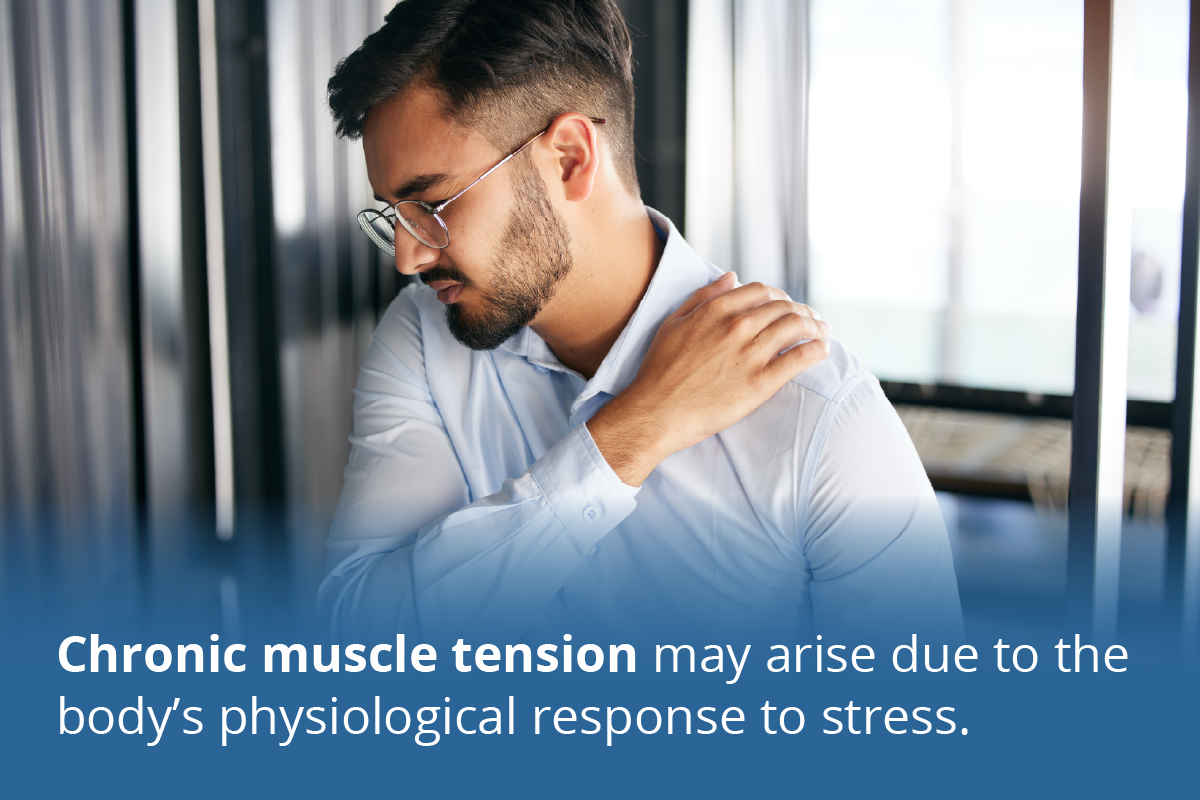
Taking the first step is the hardest part.
Emotional trauma is the lasting impact of overwhelming events or stress that exceeds one’s coping ability. In adults, signs of emotional trauma may manifest in disrupted sleep, intense anxiety, and difficulty concentrating. Emotional withdrawal, irritability, and a diminished sense of self-worth are common indicators.
Physical symptoms like headaches and digestive issues may also emerge. This article recognizes and addresses emotional trauma, promotes healing, and enhances well-being.
Trauma significantly impacts mental health, affecting thoughts, emotions, and behaviors. Here’s what you need to know:
Trauma, a profound emotional response to distressing events, encompasses experiences exceeding our ability to cope. It stems from diverse sources, including abuse, accidents, or loss, imprinting lasting effects on mental well-being.
Adults often exhibit signs like disrupted sleep, intense anxiety, and diminished self-worth. Emotional withdrawal and irritability further indicate trauma’s impact. Physical symptoms such as headaches may also surface.
Addressing trauma is crucial for promoting resilience, restoring emotional balance, and overall well-being in individuals
Identifying signs of emotional trauma involves observing changes in behavior, such as sudden mood swings, withdrawal from activities, or difficulty concentrating. Physical symptoms like headaches and fatigue can also indicate emotional distress. Pay attention to shifts in sleeping and eating patterns.
Emotional trauma may manifest as irritability, anxiety, or feelings of helplessness. Persistent nightmares or flashbacks may signal unresolved trauma.
Additionally, watch for a decline in personal hygiene and increased substance use. It’s crucial to offer support and encourage professional help if needed.
Physical signs of trauma may manifest in various ways. Individuals might experience heightened arousal, increased heart rate, rapid breathing, or trembling. Alternatively, some may exhibit dissociation, appearing detached or emotionally numb. Sleep disturbances (insomnia or nightmares) can also be prevalent.
Chronic muscle tension may arise due to the body’s physiological response to stress. Gastrointestinal issues, headaches, and changes in appetite are additional physical indicators.
Mental and physical well-being are linked. Trauma recovery should address both aspects holistically.
Trauma can show in mental and emotional ways. People may feel intense fear, sadness, or anger. Flashbacks, where past events feel real again, can happen. Avoidance of reminders is common. Sleep troubles, like nightmares or insomnia, may occur.
Some might struggle with concentration and memory. Emotional numbness can make it hard to connect with others. Mood swings and irritability are signs, too. Anxiety and panic attacks might show up. These signs impact daily life and well-being.
It is important to understand these indicators to seek professional help and receive the necessary support. It’s okay to ask for assistance if you or someone you know is experiencing these challenges.
Trauma’s impact extends to social and behavioral aspects. Individuals may withdraw from friends and family, isolating themselves. Avoidance of places or exercises related to the trauma is common. You may experience relationship changes, such as increased conflicts or difficulty trusting others.
Some may engage in risky behaviors, seeking an escape. Substance misuse might be a coping mechanism. School or work performance can decline due to concentration challenges. Irritability and outbursts are behavioral signs.
Learning these social and behavioral cues is essential for support. It is important to encourage open communication and seek the help of a professional if necessary. Building a supportive environment can aid in the healing process.
Emotional trauma can manifest in various ways, and recognizing the symptoms is crucial for understanding and addressing its impact.
An understanding of the emotional trauma symptoms and triggers is vital to supporting those affected. Offering a non-judgmental space contributes to the healing journey. At The Haven Detox-Little Rock, resources and mental health services are available to aid recovery.
Trauma significantly impacts mental health, affecting thoughts, emotions, and behaviors. Individuals may experience persistent feelings of fear, sadness, or numbness.
Relationships can be strained due to emotional detachment or irritability. Seeking professional help is crucial for managing these effects. Mental health services in the United States provide support, including therapy and counseling.
Physical signs of trauma may manifest in various ways. Individuals might experience heightened arousal, increased heart rate, rapid breathing, or trembling. Alternatively, some may exhibit dissociation, appearing detached or emotionally numb. Sleep disturbances (insomnia or nightmares) can also be prevalent.
Chronic muscle tension may arise due to the body’s physiological response to stress. Gastrointestinal issues, headaches, and changes in appetite are additional physical indicators.
Mental and physical well-being are linked. Trauma recovery should address both aspects holistically.
A prevalent mental health condition is anxiety, characterized by excessive worry and fear that disrupt daily life. It can manifest as physical symptoms like restlessness, rapid heartbeat, and sweating.
It’s normal to feel tense or nervous and struggle with controlling your worries over time. Panic attacks and sudden intense bouts of fear are part of anxiety.
Seeking professional help is essential, and treatments like therapy and medications can be effective. Everyone benefits from a supportive environment that reduces stigma and promotes mental well-being.
Post-traumatic stress disorder (PTSD) develops after undergoing or witnessing a traumatic event. Symptoms include flashbacks, nightmares, and intense anxiety, often triggered by reminders of the trauma.
People with PTSD may avoid places or activities associated with the event. Sleep disturbances and heightened irritability are common. It is important to remember that with proper diagnosis and treatment, many individuals with this condition can lead fulfilling and productive lives.
Emotional trauma can profoundly impact well-being, but effective treatment options exist to support healing and recovery.
Seeking professional help and exploring diverse treatment approaches empowers individuals to navigate and ov
Navigating the journey to recovery can bring up many questions. Below are some of the most commonly asked questions about our services. If you need more information or have additional questions, we are only a phone call away.
How do you know if you’re emotionally traumatized?
Identifying emotional trauma involves understanding its various manifestations.
Traumatic events affect the brain and nervous system, leading to problems in physical and psychological health. Complex trauma, often stemming from adverse childhood experiences, may manifest in low self-esteem and other emotional difficulties.
Observing changes in behavior, mood, or relationships in oneself or others, especially children, can be indicative. Risk factors, family history, and seeking information are crucial. For patients, acknowledging and addressing emotional trauma is essential for healing and promoting overall well-being.
How does your body register trauma?
The body registers trauma in various ways, especially after traumatic experiences. Psychological trauma can impact physical health, manifesting in symptoms that differ based on the type of trauma.
Acute trauma can trigger immediate emotional reactions, affecting the nervous system. Family members may notice changes in behavior or mood.
Symptoms of trauma can include heightened stress responses, altered sleep patterns, or even physical pain. Emotional reactions may range from anxiety to numbness.
These manifestations lead the body to register trauma. It is crucial to understand the link between mental and physical well-being when dealing with trauma and working towards recovery.
After rehab, life can be both hopeful and challenging. You’ll start rebuilding daily routines, focusing on maintaining sobriety and managing triggers. Support from behavioral therapy, support groups, and loved ones is vital for ongoing recovery. It’s essential to set realistic goals, stay active, and develop healthy habits. Relationships and work life might need adjustment, but with perseverance and support, you can lead a fulfilling and balanced life. Embrace this new chapter with patience and a positive outlook.


Other Categories Alcohol Use Treatment Drug Use Recovery Bullying is a pervasive issue that profoundly

Other Categories Alcohol Use Treatment Drug Use Recovery Co-occurring disorders refer to when a person

Other Categories Alcohol Use Treatment Drug Use Recovery Borderline Personality Disorder (BPD) often presents in
Let’s talk about what’s going on — no judgment. (We’ve been there before ourselves). No one will know you inquired and there is no commitment to call.
Need someone to talk to? We’re here when you need it most.
There’s no obligation to get your questions answered.
No one will ever know you inquired.
Copyright © 2025 The Haven Detox. All rights reserved.